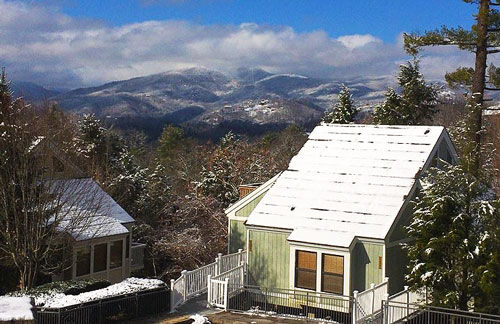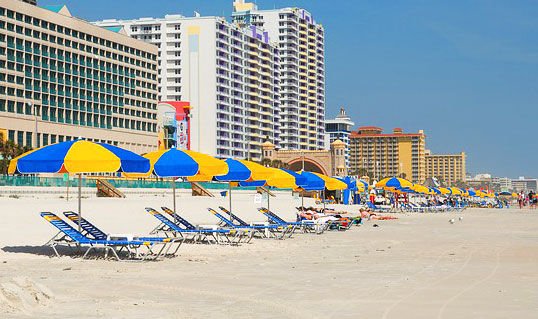Are Timeshares Worth It? All You Need to Know about Timeshares (This Will Make You an Expert)
- Greg Webster
- Sep 3, 2020
- 17 min read
Updated: Sep 8, 2021

I’m not sure we should be doing this. Lots of people say it isn’t a good investment. I can’t believe we’re stuck with a timeshare.
Doubts about investing in a timeshare can pester buyers and sometimes even owners. Part of the problem is that, to most experts, “investment” means just one thing: Money used for financial growth. They’re good at recommending investments for your family. But few ever think to recommend investments in your family. It's a distinction worth thinking Different about, and it's a major reason why experts who answer the “are timeshares worth it” question often don’t measure the real value of a timeshare.
Using Money for What Matters Most
From the day my wife and I married 40 years ago, we’ve loved to travel. We spent our honeymoon staying in picturesque motels and camping along the Blue Ridge Parkway in Virginia and North Carolina. Since then, we’ve explored the United States from border to border and coast to coast. We’ve backpacked the Grand Canyon, vacationed with our family of 10 from North Carolina to Colorado, and taken assorted trips for small groups of us to New England, the Pacific Coast, and most everywhere in between. Drawing on our experience, I even planned a six-week honeymoon through the American West for my daughter and son-in-law. In all, the adventures have taken me to 48 states—most of them multiple times. But one of our most exciting travel opportunities has opened up in the several years since we bought a timeshare. “Really?” You marvel. “One of those?”

How Do Timeshares Work?
Timeshares are a much-maligned, badly misunderstood product. And it’s little wonder. The internet hosts an astounding amount of dis-information about them. When reading what some folks who should qualify as experts say about timeshares,
my reaction is that, well . . . they don’t know squat. Many are stuck in last century’s version of a timeshare while others sound like they need therapy because of a “bad experience” in a timeshare presentation once upon a time. For example, here’s how Dave Ramsey explains “timeshare” on his website:
"A timeshare is a vacation home split between folks who buy into it for the right to use it once a year for a set period of time. These people pay a lot of money upfront to guarantee their week every year to vacation in this timeshare location."
If Ramsey & Company had written that in 1986, they’d be spot on. But this definition comes from the current Dave Ramsey website, and it could hardly be a less accurate reflection of timeshares in 2021.
Old School Timeshares: Bad News of the Past
Timeshares of yesteryear were pretty limiting to people who love to travel.
That’s what Nancy and I concluded after spending a couple of hours at a timeshare presentation in Gatlinburg, Tennessee on a vacation with our first child (now in his 30s)
who was then an infant.
Did we want to spend $5,000 for the right to spend a week at that “nice place” in Gatlinburg once a year for the rest of our lives—or maybe exchange it for a week in who-knows-where-else if we could work out a trade?
Uh, NO. Or maybe even: DUH, no.
We were in Gatlinburg because it was only a four-hour drive from our then-home in Atlanta, and we needed a nearby, long-weekend getaway. Our travel dreams soared way beyond the “Gateway to the Smokies.”
_________________________________________________________________________________
When reading what many folks who should qualify as experts say about timeshares, my reaction is . . . they don’t know squat.
_________________________________________________________________________________
We’d already lived in California for four years and visited every national park in the Golden State, Utah, and Arizona. We’d wound our way through Montana and into Alberta and British Columbia. Yet, that merely whetted our appetites for travel riches west of the Mississippi River, and we hadn’t even begun our exploration of the East.
We intended to taste life in New England, on the Gulf Coast, at the heart of American history in Philadelphia, Boston, and Washington, and we dreamed of many more days in the enchanting Blue Ridge Mountains.
We weren’t about to throw a pile of money into a week at Gatlinburg.
An Old School timeshare absolutely was not for us.
But 30 years later?
New School Timeshares: Are Timeshares Worth It in 2021?
Wow. What an eye-opener when we stepped back into our first timeshare presentation in three decades!
Is it worth it to buy a timeshare?
Well, YEAH.
The opportunity to see even more of the world exploded in front of us. No more one week in one place.
Through a remarkable system of timeshare credits—called “points”—we could now choose
any of thousands of destinations and know we would have a (really, really) nice place to stay. Later, I’ll talk more about how points work, but first, a bit about what they allow you to do.

Did I explain why “really, really nice place to stay” matters so much?
Our travels have included a lot of camping but not always because we specifically wanted to camp. Sometimes, we just couldn’t afford to go any other way. There were times it would have been nice to spend a night sleeping instead of swatting mosquitoes.
And the lodging war stories: A grungy motel in St. George, Utah with a moldy shower stall so narrow that my shoulders touched the walls. Or the “quaint,” mildew-scented, Priceline-bid motor lodge near the York River in Virginia.
Now, points give us the choice of heading to the United States and beyond in any season and in whatever size really, really nice accommodations we want.
Here’s a sampling of really, really nice places we’ve stayed in the past three years:
Phoenix, Arizona (family of 7 trip to the desert Southwest, including the Grand Canyon)
Gordonsville, Virginia (family of 5 and a friend to the Shenandoah Mountains and historic homes of Thomas Jefferson and James Madison)
St. Augustine, Florida (extended family of 17 plus a friend to the Atlantic Ocean)
Gatlinburg and Pigeon Forge, Tennessee (4 different trips: to celebrate a milestone birthday, re-connect with an old friend, and a couple of times just to get away)
Ridgedale, Missouri (extended family adventure for 17 kids and grandkids to the Ozark Mountains)
Cashiers and Lake Lure, North Carolina (one- and two-week retreats for 5 to 9 family members in the Blue Ridge Mountains)
So, New School: Not exactly a restriction on our travel dreams.
All You Need to Know about Timeshares

Although timeshares are marketed as a vacation opportunity for the family, taking a typical vacation at a timeshare resort is merely the iceberg tip of possibilities. There are a lot of reasons why people buy timeshares.
If you want to run away for a week with spouse and a couple of kids, you can do that, for sure. But to use a timeshare one or two weeks a year for just your immediate family doesn’t tap the immense benefits it offers.
To illustrate the rest of the iceberg, the list below offers an array of very real possibilities.
Trips with Extended Family
You might have a hard time convincing a couple dozen extended family members to join you for a vacation at the price of $200 - 400 per night, but probably not if you host them at your timeshare. Once you’ve made the investment, you can sponsor everyone who comes with no out-of-pocket lodging costs for you or anyone else.
And if you don’t want to offer a complete freebie, ask for contributions.
How about being the hero who provides everyone a week-long stay at a $300/night resort for $30/night? You could cover your own out-of-pocket costs for gas, food, souvenirs, and fun, and still be the family superstar for giving everyone a week’s luxury stay for less than the cost of one night.
Downright Cool Vacations
Pick a location near places you want to see, and the fun begins.
Theme parks your thing? Book a stay in Orlando, and you’re in theme park heaven.
Are you a history buff? Surround yourself with Civil War battlefields and historic presidents’ homes.
Nothing but the beach for you? Pick one—Atlantic, Gulf Coast, or how about Aruba? Nothing’s out of reach.
You want a place that gives you the option of a dozen different day trips in the Rocky Mountains? It’s yours.
Connect with Friends
Does a long-time friend live halfway across the country, but you want to stay in touch? Pick a spot somewhere between you, book a few nights, and treat both of you to several days catching up and keeping your relationship fresh.
Gift Trips

Why not send a special someone
on a dream trip for a birthday or anniversary?
Timeshare plans often let you share your resorts with anyone you choose. You simply make a reservation in the gift recipient’s name and become the generous giver of a memory that lasts a lifetime.
Use It Like a Second Home
Maybe you wish you could see what living in another part of the country is like, but owning a second home is expensive—and truly does restrict you to one other place to go.
The solution: Book several timeshare weeks or even a month and settle in to experience a bit of life somewhere different—this year in Vermont, maybe next year in Montana.
Business
I’m a professional writer and have used a timeshare for writing retreats, planning, and time apart for projects too tough to get done in a business-as-usual setting.
You might want to schedule meetings for your management team, sales force, or support staff at a way-cool location in the mountains, at the beach, or a destination city like Las Vegas.
Need to hold a small conference for you and a few associates? Done.
Want to reward the top-performers in your network marketing downline? Say “thank you” by sending them to Aspen for a few days.
And many times, your business use is tax deductible (but check with your accountant to know for sure if this works for you).
No matter how you use it, you’ll build memories of meaningful times with people who matter most.
Are Timeshares a Waste of Money? Probably Not!

(If numbers aren’t your thing,
you may want to skim this section,
but if you like ciphering, dig in.)
To focus on the money: Are timeshares a good investment?
It depends on what sort of return you’re looking for.
If you want a specified return for the money put in, then a timeshare is almost certainly not a good investment. While they do have a manner of equity value, it's not in anyone’s financial interest to invest in a timeshare if the primary goal is to grow your money. If you hope a $20,000 investment will become $30,000 in 10 years, then put your money somewhere else.
But does a timeshare create measurable returns?
Absolutely.
In the “All You Need to Know about Timeshares” section above, I detailed intangible benefits you can expect from a timeshare. To look at the tangible side of the ledger, let me introduce you to a concept I call equivalent vacation dollars.
What’s Your Return in EVD?
Figuring equivalent vacation dollars is a 3-step process, that answers these questions:
What would you have to pay for comparable accommodations if you did not have a timeshare?
What is the actual cost of a timeshare?
How much are timeshare points worth in equivalent vacation dollars?
Step 1: What would you have to pay for comparable accommodations if you did not have a timeshare?
I used my own experience to come up with an annual average number of nights used and the comparable cost in dollars. To minimize the effect of on- and off-season travel, I looked at a year-and-a-half’s worth of time away and turned it into a yearly average. Here’s what I came up with:
An average of 48 nights of accommodations per year. (I figured it this way: 1 unit for 5 nights = 5 nights of accommodations. And 5 units booked simultaneously for 5 nights of extended family travel = 5 units X 5 nights = 25 nights.)
Estimated cost of comparable accommodations = $250/night. (This is likely a low-ball estimate.)
Total comparable cost if paid out of pocket = 48 nights X $250/night = $12,000 worth of accommodations in a year.
Step 2: What is the actual cost of a timeshare?
Timeshares can be purchased via one lump sum or by monthly payments in a mortgage. Either way, you start with a fixed price, much like buying a house.
In this example, we paid about $60,000 to get an average of 48 nights per year for as long as we own the timeshare.
In addition to the purchase, timeshares require an annual maintenance fee, but otherwise, there’s no additional cost, and ownership continues throughout the life of the owner and his or her heirs.
_________________________________________________________________________________
Does a timeshare create measurable returns? Absolutely.
__________________________________________________________________________________
To determine a yearly cost for the timeshare, we’ll amortize the purchase over 10 years. That means we assign one-tenth of the purchase price to each of the first 10 years of ownership.
For a $60,000 price, the annual cost for 10 years is $6,000 per year. In addition, we add $2,700 worth of maintenance fees for a total cost of $8,700 per year during the first 10 years of ownership.
So, for the first 10 years in this scenario, an owner receives $12,000 worth of accommodations every year for an outlay of $8,700 per year.
In investment terms: To turn $8,700 into $12,000, means you’re getting a 37% return each year.
But the results get even more dramatic after 10 years.

Once you amortize the purchase price, the only remaining out-of-pocket cost is the maintenance fee. At $2,700 per year, in years 11-plus, the 48 nights deliver a vacation dollar return of 444%! ($2,700 requires a 444% return to produce $12,000 in one year.)
If you take on a mortgage for the purchase, of course, the numbers change because a loan introduces the cost of interest.
In my case, having purchased about one-third of our timeshare in a lump sum and two-thirds via a mortgage, I’ll cut to the chase and tell you that, with loan interest applied to the above example, the first 10-year return drops to roughly 23% instead of 37%. But since the loan is paid off in 10 years, the return on years 11 and following remains the same.
Step 3: How much are timeshare resort points worth in equivalent vacation dollars?
When you buy a timeshare, prices are often quoted as a price-per-point. So, to stay with our example, the price in our example is $60,000/35,000 points = $1.71 per point. (A lot of variables affect pricing, so I’m not suggesting that this is a price you can expect to pay.)
But the price doesn’t show what you can actually do with the points. Translating the purchase price into equivalent vacation dollars does.
The value delivered is major.
Step 2 shows that, for the first 10 years, every $1.00 spent on your timeshare delivers $1.37 in accommodations, so the EVD is $1.37. You get nearly 1.4 times the value of your money in really, really nice places to stay.
And for years 11+, the EVD is $4.44 for every $1.00 spent on a timeshare—a wicked good supercharging of your spending power for vacations.

But wait, as they say, there’s more.
I’ll spare you any further calculations and simply point out that timeshare programs can include extras such as lodging upgrades that cost no points. Some even kick in an annual free week or more without using points at all. Add-ons like these further increase the EVD of a timeshare.
In addition, you may receive discounts on airfares, car rentals, and even cruises that aren’t directly part of the timeshare plan.††
There are a few less obvious benefits as well. Timeshares allow you to travel light. Since lodging may include a washer and dryer, you can wash your clothes instead of packing extra. Many accommodations also feature a full kitchen, so you can save money on eating out.
The $21,455 Question
According to the American Resort Development Association, the average investment in a timeshare is a tad under $21,500. Timeshare companies usually offer differing levels of buy-in, but even at this average level, you’re spending enough money to warrant careful consideration.
So, who has the best timeshare program?
Well . . .
What do you want out of a timeshare?

I’ve known people who think the best way to spend any vacation is at Disney World. For them, it would be hard to beat the Disney Vacation Club. Not only that, ARDA awarded Disney the 2020 Excellence in Customer Service Award.
And if you want to go where you’ll be served by people who particularly enjoy what they’re doing, Diamond Resorts is the ARDA 2020 timeshare resort Employer of the Year.
In case you’re a thorough researcher, you may enjoy visiting the websites of every timeshare company in the ARDA membership directory. Or for a less exhaustive search, you could check out the Wikipedia list of timeshare companies.
But, frankly, I don’t recommend doing either.
Instead, I’ll give you a few tips and anecdotes from my own experience.
In most any Google search of “top timeshare companies,” a handful show up repeatedly.
These are the ones that rise to the top:
Having entered the timeshare world through Bluegreen and its 65+ corporate-owned resorts in the U. S., we’re also connected to the RCI network of approximately 4,300 resorts worldwide.
Reservations and point usage through Bluegreen and RCI are nearly seamless. For a travel planning junkie like me, orchestrating trips through the remarkably functional Bluegreen website and the competent and courteous customer service folks is nearly as much fun as taking the vacation.

Scheduling Your Vacation Time
It’s worthwhile to talk a bit more about the fun-of-planning part of the “is it worth it to buy a timeshare” question.
In my “All You Need to Know about Timeshares” section, I described a wide range of ways to use a timeshare, but to keep this planning exercise simple, let’s just look at a week-long vacation for a family of five at an American beach in July.
Resort choices include the Gulf Coast, Atlantic Coast, and Pacific. So, suppose you live in North Carolina, want to spend a week somewhere, and intend to drive. Your drive-there filter eliminates Pacific Coast resorts.
Do you want to go to Destin, Gulf Shores, or Panama City on the Gulf or Myrtle Beach, Daytona, or Ft. Lauderdale on the Atlantic? Suppose drive times to South Carolina or central Florida sound best to you. That eliminates the Gulf Coast.
__________________________________________________________________________________
Perhaps the nicest feature of a good timeshare program is that you won’t go wrong, no matter which resort you choose.
__________________________________________________________________________________
Since July is prime beach time, you’re traveling in the highest point-cost season, but there’s still likely a variation in cost among resorts. If you want to go for the lowest outlay of points, compare the available 2-bedroom suites for your family. If Myrtle Beach requires 5,000 points and Daytona is 8,000, book a stay on the South Carolina coast.
But if amenities are king, dig a little deeper. Do you want a lazy river to go with that beach? That might narrow your choice to one or two resorts.
One other caveat: If you have a particular destination in mind, you’ll want to plan in advance to get accommodations at the resort of your choice. On the other hand, if you just want to go, last-minute lodging is typically available somewhere.
Wherever and whenever you travel, perhaps the nicest feature of a good timeshare program is that you won’t go wrong, no matter which resort you choose. Amenities and proximity to the beach may differ, but you’ll for sure have “a really, really nice place to stay.”
Timeshare Problems and What to Avoid
On your way to enjoying all those nice places, what are some issues you might run into?
I’ve outlined below how to avoid pitfalls and get the best deal possible to make it worth it to buy a timeshare.
1) The Timeshare Presentation.
Most people make a purchase through an on-site presentation at a resort. In exchange for your commitment to attend an hour-or-two-long pitch, you get a free or low cost stay for a couple of nights.

After hearing the benefits of timeshare ownership, you’ll likely go one-on-one with a salesperson who may offer a deal that’s “only good while you’re here today.” If you don’t buy right then, you’ll have to pay the regular retail price later.
But who wants to make a spur-of-the-moment decision to spend $20,000 or more?
Like, NO ONE.
You can avoid the high-pressure decision in one of two ways.
First: Go prepared. Through the resources I’ve outlined, decide in advance how much a timeshare is worth to you. And if you can line up a way to pay before you get there, even better.
Second: Despite the pitch, you may be able to put off the decision and still get a deal. You might even be able to try out the timeshare before making a final commitment. Tell the sales rep you’re interested in buying but ask if you can purchase a “sample plan” or an “option” to keep the deal on the table without having to hand over big bucks that day. For a fraction of the buy-in cost, you may get to try out timesharing. You’ll also have more time to think it over before you plunk down—or commit to payments for—a major dollar vacation investment.
2) The Financing.
Best scenario is to have cash in the bank before you sit down at the pitch table. If you
pay for your timeshare up front, you’re in big EVD returns from day one. If you don’t have $20 - 50,000 you can commit to a timeshare, though, the sellers can probably finance the purchase for you, assuming you can at least make a down payment.
If you’ve decided a timeshare is right for you, financing is better than not buying, but the loan terms may not be great. A high interest rate is likely.
If you balk at the interest rate, sellers may say you can re-finance later with someone else. And it’s true. Timeshare re-fi options are out there, but it’s not a guaranteed fix. You’re better off knowing at the outset that you can handle the payments without re-financing to make them fit your budget.
Another potential is to secure a loan before you go in—through a timeshare financing company (you can find those online) or arranging a line of credit through your own bank.

3) Your Flexibility.
If you have limited vacation time and can only go at certain times of the year—two weeks annual leave and kids available to travel only in June and July because of school—you should think twice about purchasing a timeshare at all. It might not be the best thing for you. At most, you’d probably want to buy in at a low level.
Chances are, you would have a hard time making use of a high-level plan, so resist being up-sold. Higher levels are more suitable for people who can take off more than a week or two, can travel during off-seasons, and can book time on weekdays.
4) Invest Enough.
If you do have the flexibility to make good use of a timeshare, you may not want to buy in at the lowest level. To make timeshare money work hard for you, consider a higher-level plan that comes with multiple bonuses and more points for less cost per point. If you don’t buy enough points, you may be frustrated by not having all the travel opportunity you really want.
5) Get Invited.
You might as well take advantage of the chance to get a free or low-cost stay in a nice place when you buy. Sign up for your “weekend away” through the timeshare website of your choice. Or send me an email, and I’ll put you in touch with the opportunities I have access to. (As a disclaimer: If you do, it could be of advantage to me, which I’ll explain if you write to me.)
6) Budget for It!
If you pay cash, use money that is truly discretionary.
Do not spend your emergency fund for a timeshare!
And if you finance it, think carefully about how the payments will fit into your monthly
budget—and allow for the annual maintenance fees!
_________________________________________________________________________________
Buying a timeshare needs to further the travel goals
you already have, not create them.
__________________________________________________________________________________
If you’re committed to serious travel, you’ll be spending a bunch of money on it, so a timeshare can be a great place to put your travel dollars. But a timeshare doesn’t just “bolt on” to a life in which you haven’t planned to roam the countryside. Travel should already have a significant place in your budget before you drop cash on a timeshare.
Are Timeshares Worth It? Reasons Why People Buy Timeshares
It bears repeating: To make a timeshare worthwhile, travel has to be part of your value system.
Do not expect a timeshare to develop the value in your life for going places, or you’ll be disappointed. Buying a timeshare needs to further the travel goals you already have, not create them.
At the beginning of this article, I told you that my wife and I have a long-standing love of travel. Owning a timeshare has enhanced that love in two significant ways:
1) We still like to camp at times, but now we don’t have to.
We used to camp on most of our trips because otherwise, we couldn’t afford to go. About half that time, though, we would rather have stayed somewhere comfortable. Now we can do comfy but still pull out the tent when camping is our preference.
2) Timeshare ownership is like forced savings for something we value—traveling with family and friends.
Now, we don’t have to wonder whether or not this month’s budget can handle a trip to the mountains. It’s already taken care of. We just have to do the going.
There’s freedom in having already committed resources to something you love.
If you have to take money out of the bank for a luxury stay somewhere, you probably won’t do it very often. But if your money has already been set aside for that purpose, you’ve made it easy to do what you value. Financial pressures of the moment won’t get in the way of your travel dreams.
_________________________________________________________________________________
There's freedom in having already committed resources
to something you love.
__________________________________________________________________________________
Finally, if you’re not among the one percent of the U. S. population who owns 40 percent of the wealth (i.e., you’re not rich), setting yourself up to stay in nice resorts is a wonderful way to feel rich.
In fact, some experts on wealth-building say that tasting what it feels like to be rich actually helps change your mindset and open you to ways of becoming wealthy. Whether it does or not, though, timeshare ownership can make you feel pretty good about whatever your status is along the way.

Done right, timeshare trips can make the journey of life much, much sweeter.
So, are timeshares worth it?
My take: They’re an investment in your life that’s hard to match. Check it out!
____________________ *Photo: Lukas Kloeppel from Pexels.
**Photo: Falkenpost from Pixabay.
***Photo: Andrea Piacquadio from Pexels.
† Photo: Christian Lambert on Unsplash. †† In my experience, the discounts are not substantial, but a few dollars saved here and there is encouraging.
<><><><>
For a fun, quick-read, personal story about making good use
of a timeshare, check out this
"case-study" of mine:
<><><><>
(To get weekly ideas and action steps for doing Different, subscribe to this blog—
and get a free copy of my e-book, Better than Perfect.)
©2020 Greg Webster. All rights reserved.





Wow unbelievable what a breakdown!!! Thats a incredible way of explaining this ....